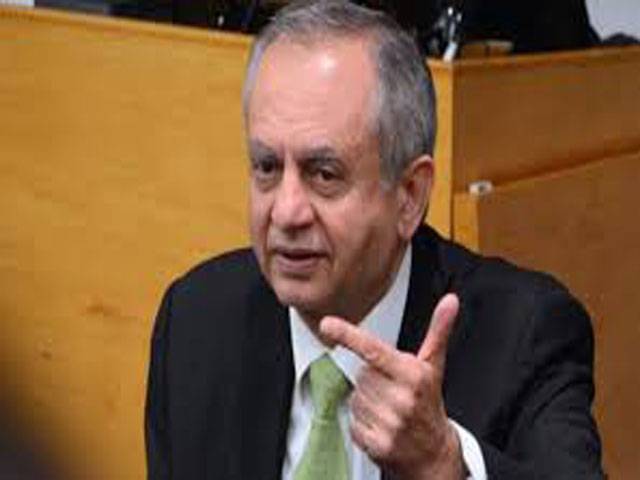ISLAMABAD-Advisor to the Prime Minister Abdul Razak Dawood on Friday said that it was the need of the hour for us to pursue the policy of ‘Make in Pakistan’ diligently and have rapid industrialisation for substituting the imports and enhancing our exports.
He made these remarks in a meeting with a delegation of Chambers of Commerce and Industry at Ministry of Commerce. The meeting was attended by the representatives of Islamabad, Rawalpindi, Lahore, Gujranwala, Faisalabad, Gujrat, Multan and Mirpur chambers.
Informing the delegation about the steps undertaken by the Ministry of Commerce in the current budget, Mr. Dawood said that tariffs need to be rationalized in order to achieve the objectives of ‘Make in Pakistan’. He added that primarily due to COVID-19 situation and to address its impact on economy, some of the sectors have not been considered for the tariff rationalization, while some important sectors have been given benefits. He reiterated that the anomalies arising out of the budget have been addressed to a large extent while others will be resolved in consultation with the stakeholders.
Talking about the future plans, the Advisor told the delegation that the Government is following a three year plan, gradually removing duties and tariffs, particularly on raw materials for the industry. He added that the Government will put a special focus on engineering sector to boost the exports, including power sector equipment, auto industry (auto parts, Two wheelers, Three wheelers and tractors), home appliances, mobile phones, sanitary ceramics ware, utensils & cutlery and pumps & motors. Mr. Dawood assured that the Government has taken important policy decisions in this regard and the engineering sector exports would considerably improve in the Fiscal Year 2020-21.
Discussing different opportunities for production of value-added products and their export, the Advisor underlined the importance of investing in certifications and laboratories, particularly for exploiting the potential in food processing sector. The Advisor also informed that the Ministry is resolving issues of the exporters on priority particularly for the export of Personal Protective Equipment.
He reassured that export of all items, i.e. hand sanitisers, disposable gowns and gloves, face shields, biohazard bags, goggles and shoe covers made from various classes of materials, including woven and non-woven chlorinated polyethylene (CPE), Polypropylene (PP), spun bond and melt blown except N-95 masks, surgical masks and tyvek suits. He reaffirmed that the Ministry is cognisant of the problems which are being discussed at the appropriate forums with the relevant stakeholders for early resolution.
Friday, April 19, 2024
‘Make in Pakistan’ policy vital for substituting imports, enhancing exports

US vetoes Palestine’s bid for full UN membership
8:27 AM | April 19, 2024
20pc Discos employees involved in power theft: Minister
April 19, 2024
Five govt officials shot dead in D I Khan
April 19, 2024
Parvez Elahi’s indictment delayed again in two cases
April 19, 2024
Hepatitis Challenge
April 18, 2024
IMF Predictions
April 18, 2024
Wheat War
April 18, 2024
Rail Revival
April 17, 2024
Addressing Climate Change
April 17, 2024
Justice denied
April 18, 2024
AI dilemmas unveiled
April 18, 2024
Tax tangle
April 18, 2024
Workforce inequality
April 17, 2024
New partnerships
April 17, 2024
ePaper - Nawaiwaqt
Advertisement
Nawaiwaqt Group | Copyright © 2024





